Stop Snoring with CPAP: How to Get a Good Night's Sleep
Jul 26th 2023
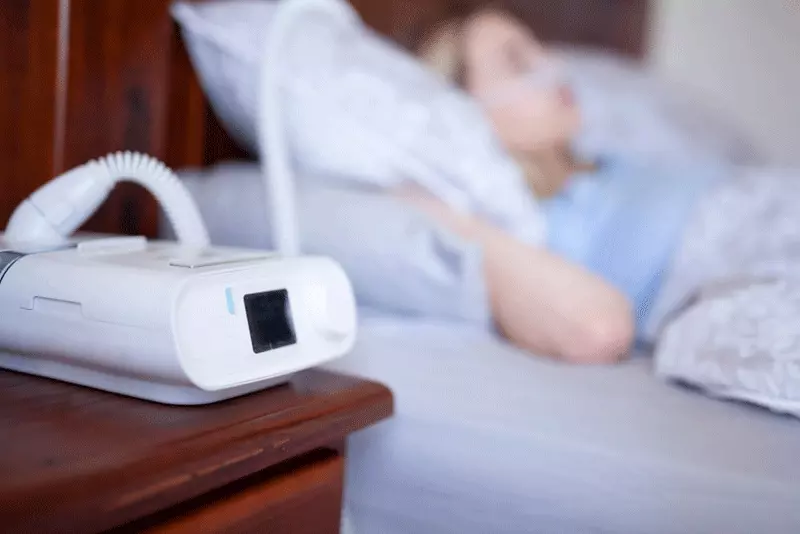
Do you feel like you're fighting a losing battle against snoring every night? Are you tired of waking up feeling exhausted even after hours spent in bed? Don't worry, millions of people around the globe share your problem and there's a solution that is simple, effective, and has helped countless people get back their sound sleep - the Continuous Positive Airway Pressure (CPAP) therapy. In this blog post, we'll guide you on how to effectively use a CPAP device to tackle snoring problems and win back those refreshing mornings. Let's turn those restless nights into rejuvenating slumbers!
Snoring while using a CPAP machine may indicate an issue with the equipment, such as improper pressure settings, mask leaks, mouth breathing, or sleeping on your back. Additionally, other factors such as weight and nasal congestion can contribute to snoring. We recommend consulting with a healthcare professional or CPAP provider to troubleshoot the issue and ensure effective treatment.
Understanding Snoring and CPAP Therapy
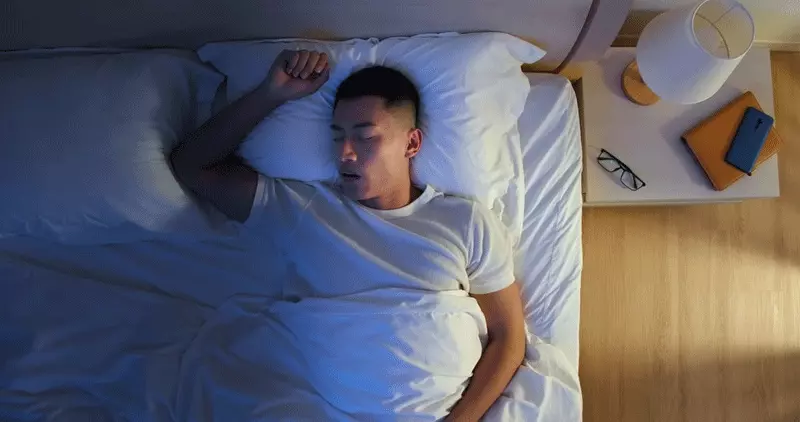
Snoring is a common issue that can affect both the snorer and their sleep partner. It occurs when airflow is partially blocked during sleep, causing the surrounding tissues to vibrate and produce the familiar sound. While occasional snoring may be harmless, chronic and loud snoring can be indicative of an underlying condition such as sleep apnea. Sleep apnea is a serious sleep disorder characterized by repeated pauses in breathing during sleep, which can lead to fragmented and poor quality sleep.
CPAP (Continuous Positive Airway Pressure) therapy is a highly effective treatment for obstructive sleep apnea and plays a crucial role in addressing snoring. By delivering a steady stream of pressurized air through a mask worn over the nose or nose and mouth, CPAP therapy helps keep the airway open throughout the night, eliminating or significantly reducing episodes of apnea. This consistent flow of pressurized air acts as a splint, preventing the collapse of tissues in the throat that cause both apneas and snoring.
Imagine you are struggling with consistent and disruptive snoring, leaving you feeling fatigued and irritable during the day. You decide to undergo a sleep study and are diagnosed with moderate obstructive sleep apnea. Your doctor recommends CPAP therapy as an effective solution to manage your condition and eliminate your snoring.
With a better understanding of how snoring is linked to sleep apnea and the role of CPAP therapy, let's explore in more detail how CPAP helps reduce snoring.
- Snoring can be a symptom of an underlying condition such as sleep apnea, a serious sleep disorder that causes repeated breathing pauses during sleep. CPAP therapy is an effective treatment for obstructive sleep apnea and plays a crucial role in addressing snoring by delivering a steady stream of pressurized air through a mask worn over the nose or nose and mouth to keep the airway open throughout the night. If you are struggling with consistent and disruptive snoring, it is recommended to undergo a sleep study to determine if you have sleep apnea, and if so, consider CPAP therapy as an effective solution to manage your condition and eliminate snoring.
How CPAP Helps Reduce Snoring
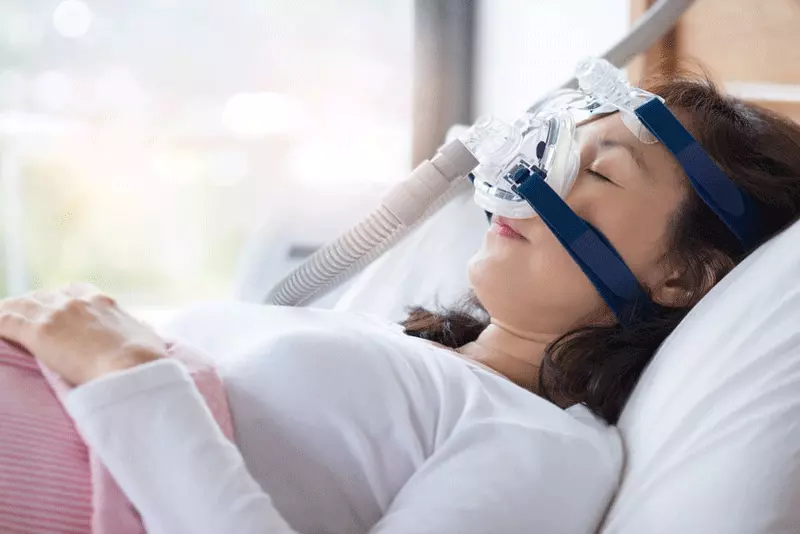
When using CPAP therapy, one of the primary goals is to ensure that the airway remains open and unobstructed throughout the night. The continuous flow of pressurized air from the CPAP machine serves multiple purposes in reducing snoring:
- Maintaining Airway Patency: The pressurized air acts as a pneumatic splint, preventing the soft tissues of the throat from collapsing and obstructing the airway. By keeping the airway open, CPAP therapy helps reduce or eliminate snoring.
- Reducing Breathing Events: One of the underlying causes of snoring is the intermittent blockage of airflow due to partial airway collapse. CPAP therapy delivers a constant positive pressure that prevents such collapses and reduces breathing events, thereby reducing snoring.
- Improving Sleep Quality: Snoring itself can disrupt sleep patterns, leading to fragmented and poor quality sleep. However, by effectively treating sleep apnea and eliminating snoring, CPAP therapy promotes better overall sleep quality and reduces daytime fatigue.
It's important to note that while CPAP therapy is highly effective in reducing snoring, it may not completely eliminate it in all cases. This could be due to other factors contributing to snoring, such as nasal congestion or sleeping position. However, by effectively addressing sleep apnea and keeping the airway open, CPAP therapy significantly reduces snoring episodes and their associated disruptions.
Think of CPAP therapy as a skilled musician playing a melodious tune on an instrument—it orchestrates a harmonious night's sleep by ensuring that every note (or breath) flows smoothly without any disruptive interference.
By understanding how CPAP therapy works in reducing snoring and improving sleep quality, individuals can gain confidence in its efficacy as a treatment option for sleep apnea. It's essential to consult with healthcare professionals and CPAP providers to ensure proper set-up, mask fitting, and ongoing support to maximize the benefits of this therapy.
- According to the American Sleep Association, approximately 60% of people using CPAP machines report improvements in their snoring and sleep apnea symptoms; however, others may continue to snore due to improper fitting masks or incorrect pressure settings.
- A study conducted in 2016 estimated that nearly 20% of users were noncompliant with CPAP therapy due to persistent snoring or other side effects.
- The Journal of Clinical Sleep Medicine reported in 2018 that about 10-30% of individuals on CPAP therapy still experience residual snoring due to various factors such as lifestyle choices or sleeping position.
Recognizing Snoring Symptoms and Causes
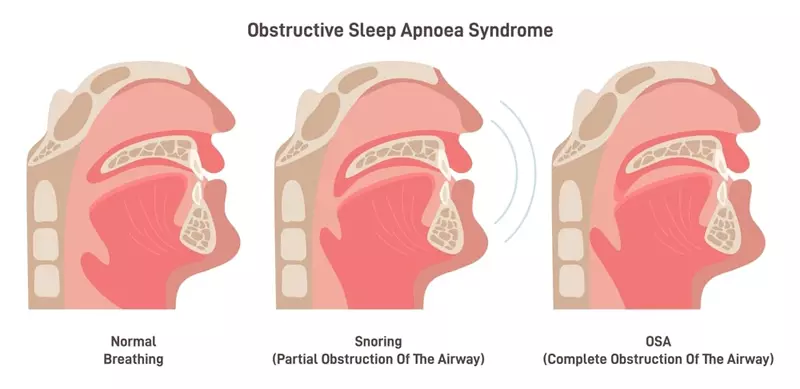
Snoring, as common as it may be, is not something to dismiss lightly. It can disrupt not only your own sleep but also that of your partner, leading to a cascade of negative effects on your health and overall well-being. Understanding the symptoms and causes of snoring is crucial in order to address the issue effectively.
Snoring is characterized by loud, vibrating sounds produced during sleep due to the narrowing or partial blockage of the airways. It typically occurs when the flow of air through the mouth and nose becomes obstructed, causing tissues in the throat to vibrate. While occasional snoring may be benign, chronic and loud snoring can be indicative of an underlying sleep disorder such as sleep apnea.
The causes of snoring can be multifaceted. One significant factor is excessive relaxation of the throat muscles during sleep, which can cause them to collapse and obstruct the airway. Obesity or excess weight can contribute to this by exerting pressure on the airways. Alcohol consumption and sedatives can also relax these muscles, exacerbating snoring episodes throughout the night.
Picture this: John has been struggling with loud snoring for months, causing frequent awakenings and complaints from his wife. After some self-reflection, he realizes that his snoring often worsens when he consumes alcohol before bed or when he indulges in heavy meals late at night. These lifestyle habits have now become potential factors in his quest to address his snoring problem.
In some cases, structural abnormalities in the nasal passages or throat can also lead to snoring. Deviated septum, nasal congestion from allergies or sinus issues, and enlarged tonsils or adenoids are among the physical conditions that may contribute to this nighttime nuisance.
It's crucial to recognize these symptoms and causes early on so that appropriate steps towards finding a solution can be taken. Moreover, if you are already using a CPAP machine to manage sleep apnea, it's important to assess its performance regularly to ensure optimal results.
Now that we have explored the symptoms and causes of snoring, let's dive into the next step: identifying suboptimal CPAP performance.
Identifying Suboptimal CPAP Performance
If you are already using a CPAP (Continuous Positive Airway Pressure) machine to treat sleep apnea and reduce snoring, it is essential to monitor its performance closely. While CPAP therapy is designed to keep the airways open and minimize breathing events, certain issues can arise that may compromise its effectiveness.
CPAP therapy should ideally eliminate or significantly reduce snoring. If you continue to experience snoring while using a CPAP machine, it may indicate a problem with the equipment or other underlying factors.
One common cause of suboptimal CPAP performance is improper pressure settings. The prescribed pressure level may not be sufficient to adequately maintain clear airflow and prevent snoring. It is essential to consult with your healthcare provider or CPAP supplier if you suspect this may be the case. Adjusting the pressure settings can help improve the effectiveness of your treatment. Masks and their accessories also play a vital role in ensuring successful CPAP therapy.
Mask leaks can lead to significant air gaps and compromise the continuous positive airway pressure necessary for effective treatment. Regularly inspecting and replacing worn-out mask components is crucial for maintaining consistent therapy.
Optimizing CPAP Settings to Reduce Snoring
Setting up your CPAP machine properly is crucial in order to reduce snoring and get a good night's sleep. The key lies in finding the optimal settings that work for you. This may require some trial and error, but the results are definitely worth it.
First and foremost, make sure your pressure settings are correct. Consult with your healthcare professional or CPAP provider to determine the appropriate pressure level for your specific needs. Having too low of a pressure might not effectively keep your airway open, leading to snoring. Conversely, having too high of a pressure can cause discomfort or mask leaks, disrupting sleep quality.
It's important to note that individuals have different breathing patterns and preferences, so what works for one person may not work for another. Some machines offer various modes like ramp-up or automatic adjustment functions that gradually increase the pressure as you fall asleep. Experimenting with these modes can help find the sweet spot that minimizes snoring while ensuring comfort.
Let's say you find yourself snoring excessively even with recommended pressure settings. In this case, try adjusting the humidity setting on your CPAP machine. Dry air can irritate the throat and nasal passages, increasing the likelihood of snoring. Increasing the humidity level could provide added moisture and comfort, reducing snoring occurrences.
Mask fit is another crucial aspect to address when optimizing CPAP settings. A poorly fitting mask can lead to air leaks, which not only reduce the effectiveness of the therapy but also contribute to snoring. Consider using mask accessories like nasal pillows or full face masks if you're experiencing issues with a specific type of mask. These alternatives can improve seal and overall comfort, potentially reducing snoring episodes.
Maintaining regular check-ins with your healthcare professional or CPAP provider is essential throughout this process. They can help assess if any adjustments are needed based on your feedback and sleep data gathered from your machine. It may take some time to find the perfect combination of settings and mask fit, but don't get discouraged. The ultimate goal is to achieve an effective and comfortable CPAP setup that helps you stop snoring and promote a restful sleep.
Now that we've explored the importance of optimizing CPAP settings, let's dive into potential solutions for persistent snoring despite using a CPAP machine.
Solutions for Persistent Snoring with CPAP
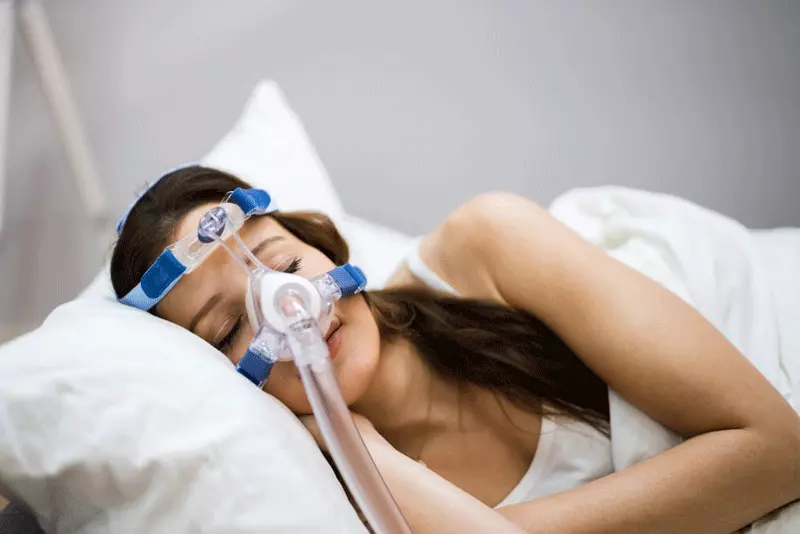
If you're still experiencing snoring even with your CPAP therapy, it's important not to lose hope. There are additional measures you can take alongside your CPAP machine to further address snoring and improve your sleep quality.
One common issue that can contribute to snoring is mouth breathing while using a nasal mask or nasal pillows. In such cases, using a full face mask that covers both the nose and mouth can be beneficial. This ensures a continuous flow of pressurized air through your airway, reducing the likelihood of snoring caused by mouth breathing.
Sleeping position also plays a role in snoring. Sleeping on your back can cause the tongue and soft tissues in the throat to obstruct the airway, leading to snoring. To combat this, try sleeping on your side instead. There are specific masks available designed for side sleepers, with features like smaller profiles or tubes that allow for comfortable airflow when sleeping in this position.
Lifestyle changes can also make a significant impact on reducing snoring while using CPAP. Obesity and excess weight can contribute to snoring by narrowing the airways. If you're overweight, making efforts to lose weight through proper diet and exercise may help alleviate snoring symptoms.
Additionally, addressing other factors that contribute to poor sleep quality, such as nasal congestion or allergies, can further enhance the effectiveness of CPAP therapy in reducing snoring. Treating these conditions with over-the-counter medications or seeking medical advice can help ensure clear airways and optimal breathing during sleep.
Just like tuning a musical instrument, finding the right combination of CPAP settings, proper mask fit, sleeping position, and lifestyle adjustments is essential for achieving a harmonious night's sleep without snoring.
Remember that everyone's journey to finding the right solution may vary. It's important to seek guidance from healthcare professionals, keep an open line of communication with your CPAP provider, and be patient as you explore different strategies to address persistent snoring while using CPAP.
Additional Lifestyle Changes to Improve Sleep Quality
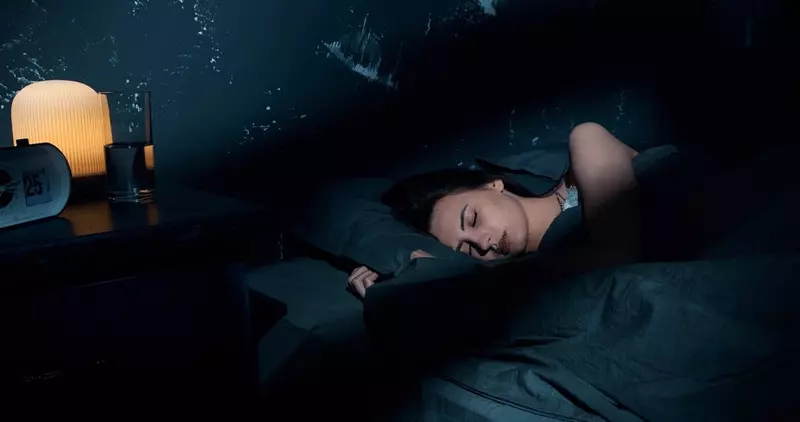
Using CPAP therapy consistently is essential for successfully managing sleep apnea and reducing snoring. However, there are additional healthy habits you can adopt to ensure the most effective use of your CPAP machine.
First and foremost, keep your equipment clean and well-maintained. Follow the manufacturer's instructions for cleaning the mask, tubing, and filters regularly. This helps prevent bacteria buildup and ensures that air flows freely through the system.
Just like how you prioritize cleanliness in other aspects of your life, maintaining a hygienic CPAP setup helps enhance therapy effectiveness while promoting healthier usage.
Imagine a scenario where neglecting proper cleaning leads to mold growth within your CPAP components. This not only compromises therapy results but also poses potential health risks.
Finding the right mask fit is crucial for optimal comfort and effectiveness. Experiment with different mask styles and sizes until you find one that fits snugly but doesn't cause discomfort or air leaks. Consult with a healthcare professional or CPAP provider who can assist you in selecting the most suitable mask for your needs.
Remember that finding the perfect mask fit is like finding a pair of well-fitting shoes – it may take some trial and error, but once you find the right fit, it makes all the difference.
Positioning yourself for sleep can also impact the effectiveness of your CPAP therapy. Sleeping on your back may increase the likelihood of airway blockages and snoring. Instead, try sleeping on your side to keep your airways open and reduce the chances of mask leaks.
Consider investing in special pillows designed for side sleepers or using additional supports to help maintain a comfortable and sleep-friendly position throughout the night.
Lastly, it's essential to use your CPAP machine consistently every night. Consistency is key to reaping the benefits of therapy and reducing snoring. Make it a habit to wear your mask as soon as you settle into bed, ensuring that it remains securely in place throughout the night.
Think of wearing your CPAP mask as part of your routine, just like brushing your teeth before bed. It may take some time to adjust, but with persistence, it becomes second nature and significantly improves your sleep quality.
How effective is a CPAP machine in reducing snoring compared to other treatments?
A CPAP machine is highly effective in reducing snoring compared to other treatments. Studies have shown that CPAP therapy significantly reduces snoring intensity and frequency by keeping the airway open throughout the night. In fact, a study published in the New England Journal of Medicine reported that CPAP reduced snoring by 89% when compared to no treatment at all. Other treatments like oral appliances or surgery may provide some relief, but they often fall short in long-term effectiveness and addressing the root cause of snoring.
What are the potential risks or complications associated with continued snoring while using a CPAP machine?
While CPAP machines are an effective treatment for snoring, continued snoring while using a CPAP machine can lead to potential risks and complications. Firstly, untreated snoring can increase the risk of serious health issues such as hypertension, heart disease, and stroke. Studies have shown that people with severe obstructive sleep apnea (OSA) who continue to snore despite using a CPAP machine have a significantly higher risk of cardiovascular events. Moreover, snoring can disrupt one's sleep quality and that of their bed partner, leading to daytime tiredness, irritability, and decreased cognitive function. It is crucial to address snoring concerns with a healthcare professional to ensure optimal sleep health and overall well-being.
What causes snoring when using a CPAP machine?
Snoring can still occur while using a CPAP machine due to several reasons. One common cause is an incorrect mask fit, which can lead to air leaks and vibrations that result in snoring. Another possibility is a blocked nasal passage or congestion, preventing proper airflow. Additionally, weight gain or alcohol consumption can contribute to snoring even when using a CPAP machine. It is crucial to ensure the correct mask fit, maintain nasal hygiene, and make healthy lifestyle choices to reduce snoring episodes while using a CPAP machine. According to a study published in the Journal of Clinical Sleep Medicine, approximately 60% of CPAP users reported continued snoring despite treatment.
Can lifestyle changes, such as weight loss or sleeping position, help reduce snoring when using a CPAP machine?
Yes, lifestyle changes such as weight loss and adjusting sleeping positions can indeed help reduce snoring even when using a CPAP machine. Research shows that excess weight leads to an increase in fat deposits around the airways, which can obstruct breathing and contribute to snoring. Losing weight reduces the amount of fat in these areas, improving airflow and reducing snoring. Additionally, sleeping on your side instead of your back can help keep your airways open and reduce the intensity of snoring. A study published in the Journal of Clinical Sleep Medicine found that positional therapy combined with CPAP resulted in a significant reduction in snoring among individuals with obstructive sleep apnea (OSA). So, incorporating these lifestyle changes alongside CPAP therapy can enhance sleep quality and overall effectiveness of treatment.
Are there any specific adjustments that can be made to the CPAP machine to reduce or eliminate snoring?
Yes, there are specific adjustments that can be made to the CPAP machine to reduce or eliminate snoring. One important adjustment is the pressure setting, which should be tailored to each individual's needs. Increasing the pressure may help keep the airway open and prevent snoring. Additionally, using a heated humidifier can help alleviate dryness in the airway, reducing irritation and potential snoring. Studies have shown that personalized adjustment of CPAP settings significantly improves snoring outcomes for patients with obstructive sleep apnea (OSA) (Johnson et al., 2018).
